Earlier this year my friends and I stumbled across a song from the Australian band Tripod called “
King Kong“, featuring the insistent chorus, “Get to the F—ing Monkey” (so NSFW, unless perhaps you work in construction). On TV Tropes the sentiment they express falls under the
Just Here For Godzilla heading: the idea that if, for example, you’re at a movie to see stuff being smashed, you don’t want to waste your time with anything besides that.
It’s something for a creator to keep in mind. On the other hand, it could be argued that we either take the idea too far these days, or not far enough, ending up with uneven, uncontrolled pacing that pleases neither fans of people interacting or giant apes (or *ahem* robots) wrecking things. We have to have a love interest, no matter how superfluous. We have to have action beats every X page of script. We have to have this, and that, and…
I mentioned before how the popularity of the Western genre and the era of the Summer Blockbuster missed each other by a few years, and as such I don’t think we’ve ever really seen what a Western Blockbuster would look like. I guess films like “Tombstone” might have been a stab at it, but they’re still a far cry from a noisy special effects spectacle like “Transformers: Revenge of the Fallen”.
Case in point, I watched “
Rio Bravo” the other day and clearly noted the contrast in pacing between that movie and (for lack of a better term) more modern Hollywood action films. It’s a film that’s noisy only in parts, and even then the violence is over pretty quickly. Most of it’s a lot of people talking and trying to maneuver their way through a sort of “cold war” standoff that’s hanging over a town due to a rich rancher’s brother being held in jail for murder. There’s some explosions at the end, but the core of everything is people in a more-or-less realistic depiction of conflict in a land where a Sheriff’s badge won’t stop a bullet, but the Sheriff knows that and is fully willing to have his prisoner executed if a forced rescue attempt is made.
Like “Shane”, and to be quite honest, like “Unforgiven”, Rio Bravo is a movie unafraid to take its time in telling the story it wants to tell. Does that mean it fails the test of getting to the f-ing monkey, especially for people who just wanted to see John Wayne shoot some bad guys? Well, I can’t speak for the audiences back in 1959, but given what I see of classic Westerns, I’d say it’s entirely possible that people didn’t go to these films just to see people get shot or barns catching fire. “High Noon” has, if I recall, only a single fistfight to its name prior to the climax, but it certainly has no problem holding my interest and cranking the tension. Rio Bravo has a similar (if much subtler) smoldering undercurrent to a town still trying to conduct business as usual in the face of impending calamity.
There’s a driving force to these films that I think helps carry them through the lack of people jumping from stagecoaches or fighting off bandits every other minute. I mean, it’s inaccurate of me to say no Western was ever made that’s more action-packed fluff than anything else (“Django” being a good example), but a lot of times they’re much… well, quieter films than the modern stereotype would view them as, and I think that trips people up when they try to make a Western fitting the modern action movie mold. The classic Westerns aren’t so much about the storm breaking on your head and homestead so much as the smell of ozone on the wind, and the observance of the dark, flashing clouds on the horizon. The storm
will come, inevitably, but it will come in its own sweet time, and you’ll feel that tension up until the thundercrack heralds its arrival.
It’s just a theory of mine, but I believe “Unforgiven”, which was Clint Eastwood’s love letter to the genre that made him a star, understood this so well that it brings a quite literal storm into effect for William Munny’s final visit to Big Whiskey. Or there’s “Yojimbo”, Akira Kurosawa’s transplanted tale of the Old West which has a protagonist who, like William Munny, is laid up sick and injured for the middle portion of the movie before he returns to end things amid a tornado of dust and leaves.
For all these movies, taking time out for some lengthy conversation, or in some cases maybe even a little singing, was not only not crazy, but actually felt natural to the story. It just feels so different to watch them and see even the characters clearly meant as comic relief allowed to have a certain purpose and depth. To see a relationship between a man and woman that’s not forced to develop mostly as they fall off cliffs or run from explosions. And all fitting almost casually into a couple hours of runtime, letting the audience breathe and think, while still providing a satisfying climax in the end.
The Coen Brothers are the only ones I can think of off the top of my head that still make a recurring habit of providing films along these lines, although they’re not perfect for me (I still think No Country for Old Men went on longer than necessary). But what they do is now considered “quirky” and “offbeat”, when once it seems like it was more the norm. So much the norm that the classics of the most earthy and American of genres embraced the standard with an unhurried and powerful grace.
Maybe we’ve gotten too frantic to appreciate that manner of storytelling anymore, in the same way a lot of directors these days can’t seem to keep the camera still, or keep their hands off the slo-mo effect. But on the other hand, isn’t “Jaws” considered the first of the Blockbusters? Did we take all the wrong lessons away from that, forgetting the immense amount of patience involved in the tale which provided strong characters and logical progression and emotional impact beyond just the shock and awe?
Considering the rash of cheap “nature gone mad” imitators that followed in Jaws’ wake, I guess that’s a rhetorical question. Nowadays Summer movies are written off almost before they’re made as “popcorn flicks”, where you pay your money and turn off your brain. Is it a bad thing? Eh. I love “Star Wars”. I love “Raiders of the Lost Ark”. Trying to artificially inject self-reflection and depth into such offerings is exactly the sort of thing Tripod was bitching about. It’s what makes runtimes unnecessarily padded beyond the point of boring. I even
made a whole rant about it recently.
But it certainly feels like once upon a time in the West, they took their sweet time about things… and it was good.
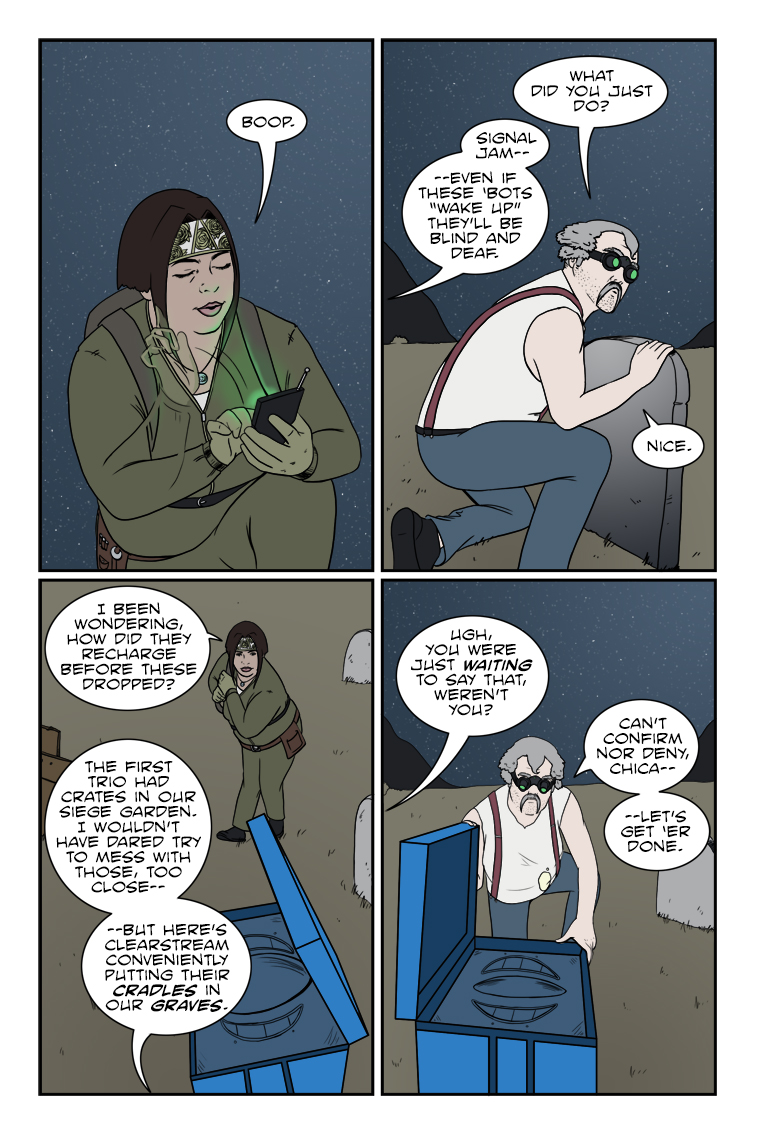
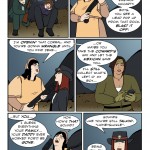
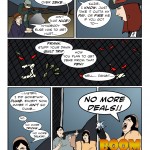
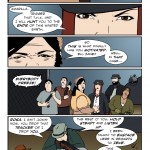
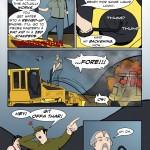
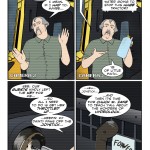
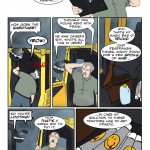
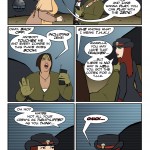
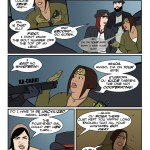
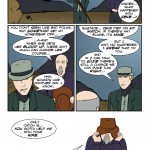
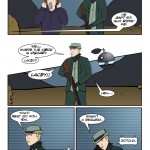
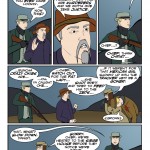

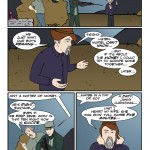
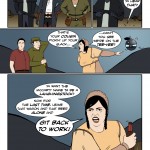
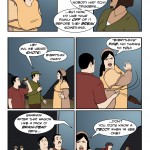
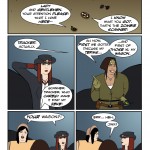
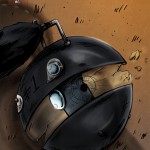
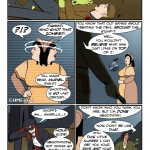
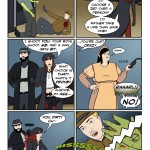
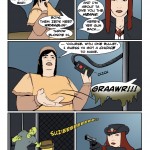








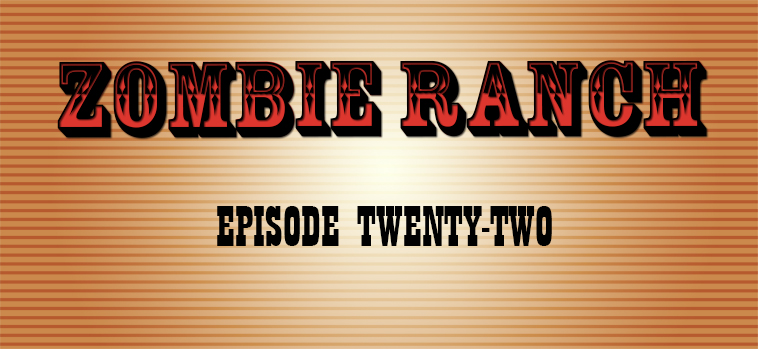
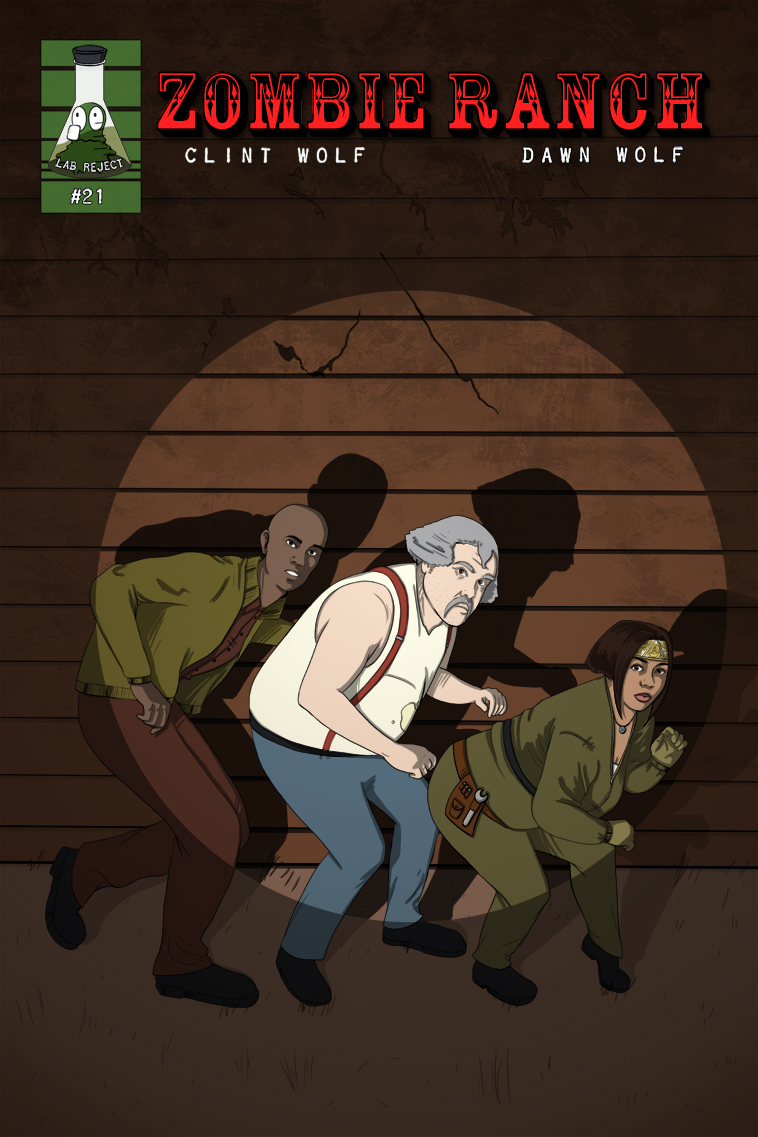
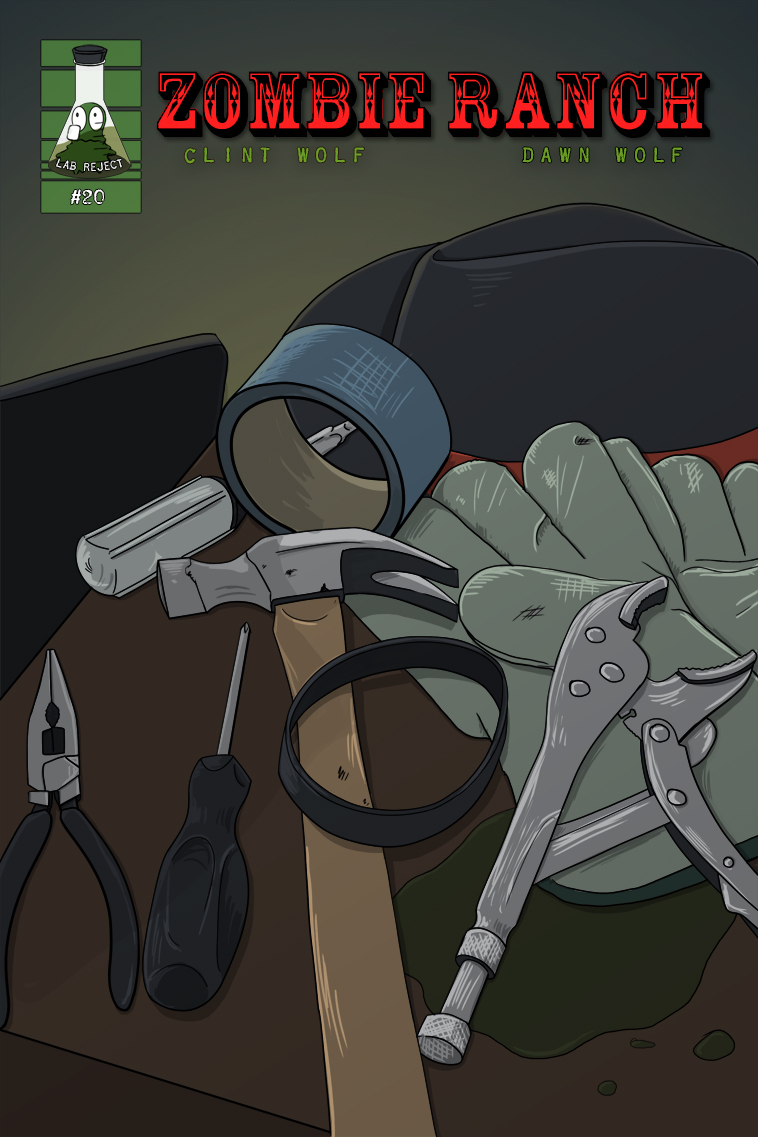
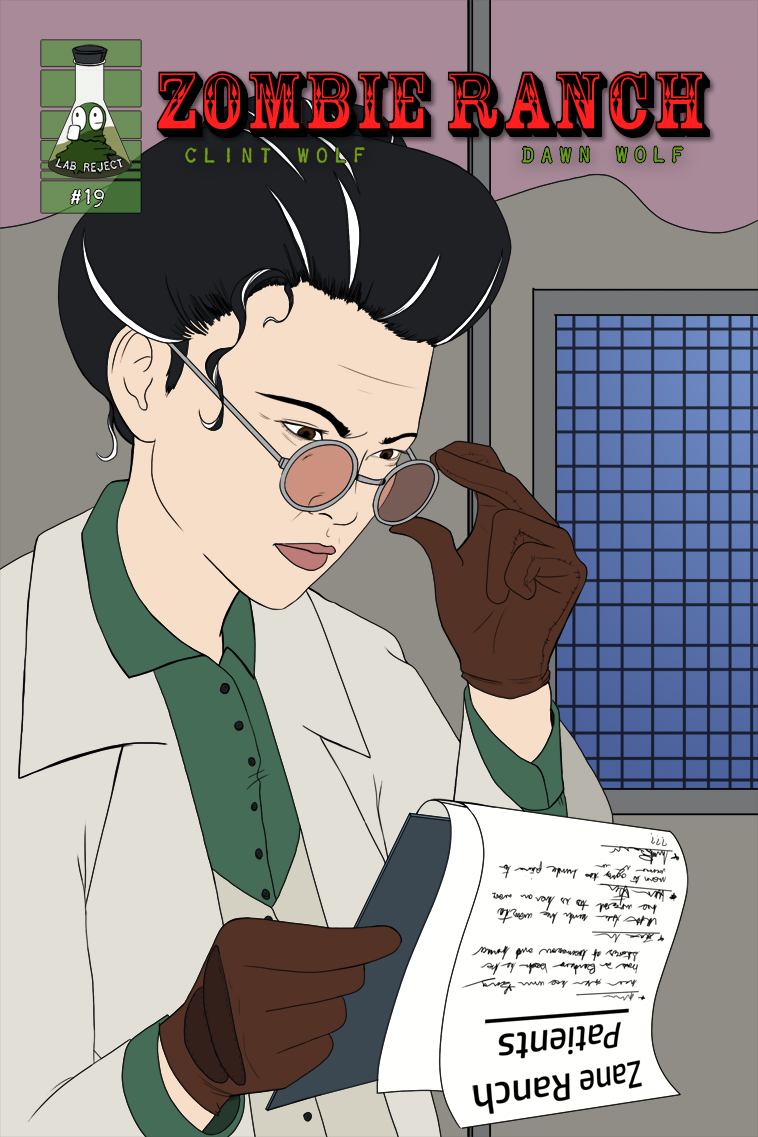
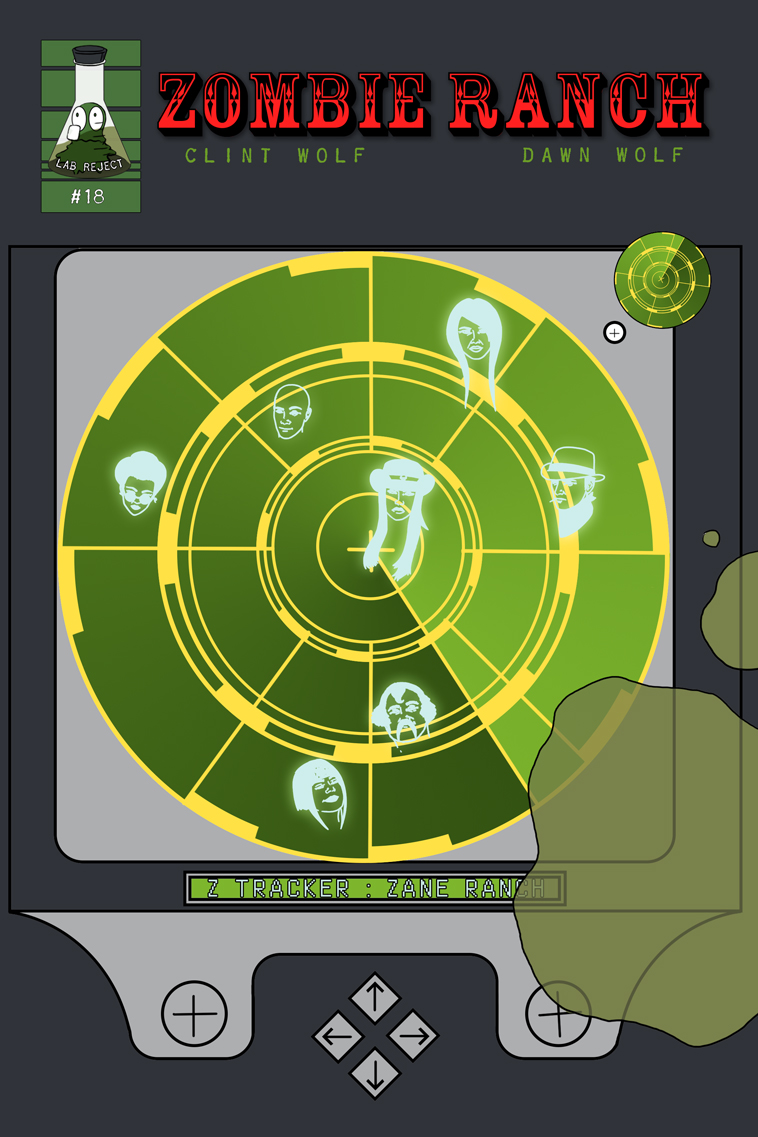
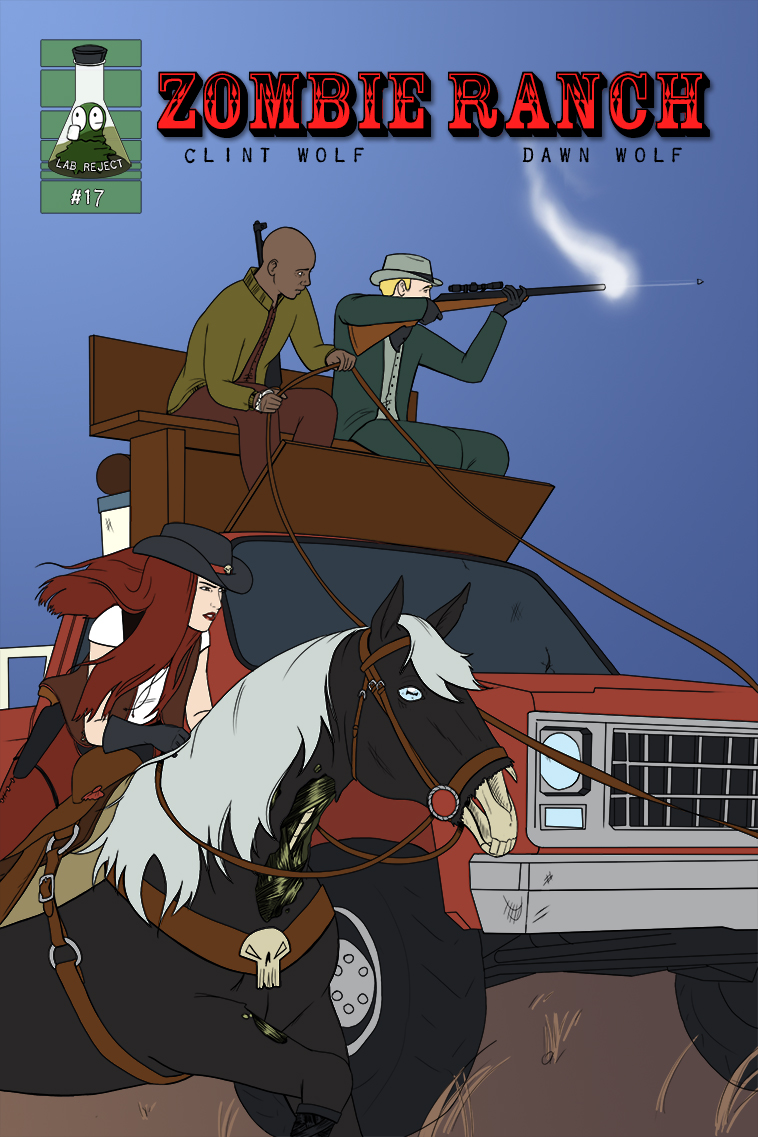
2 thoughts on “543 – Cradles And Graves”
Keith
Oh lordy, they really are a great couple…though, I suggest adopting.
Anonymous
Consequences be damned, because doing nothing might be worse.